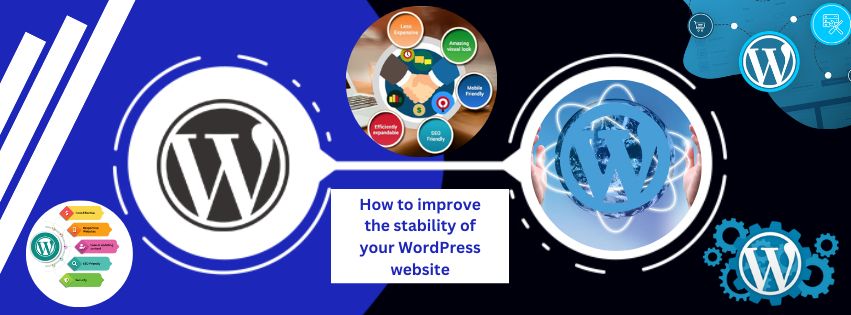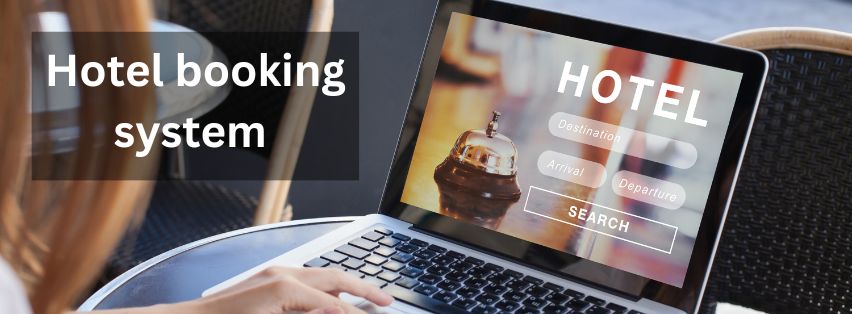
Jully 18, 2022
How to improve the stability of your WordPress website?
WordPress is a free, open-source website development platform. At a more technical level, WordPress is a Content Management System (CMS) written in PHP that uses a MySQL database.
A WordPress website is any website using WordPress as its content management system (CMS). WordPress powers both the website’s backend (the interface where a user logs in to make changes or add new content) and the frontend (the visible part of the website that your visitors see on the web).
In non-geek speak, WordPress is one of the easiest and most powerful blogging and website builders out there.
Things like search engine optimization (SEO) are essential to the growth of your site, but they don’t mean much if it’s not secured. If you don’t take measures to increase the stability of your WordPress website, it may suffer from poor performance and the risk of cyber hacking.
There are a number of steps you can take to stabilize your WordPress website. Steps such as using managed hosting and tightening your password protection can help protect your website and improve its performance. This will help ensure that your data is secure and your site is performing optimally.
In this post, we will discuss the importance of having a site that works smoothly at all times. & How to improve the stability of your WordPress website. Then let’s started….
Why WordPress Sustainability Matters
WordPress is a Content Management System (CMS) that powers over 40 percent of all websites on the Internet. While the platform is considered very secure, its popularity makes it an easy target for malicious actors.
Cyber hackers can cause a lot of harm to your site. They can steal your data, add spam links to your pages, and even take down your site altogether. In addition, a site that is not secure may experience frequent downtime.
Additionally, your WordPress site may encounter other issues that affect its performance. For example, if you’re using a shared server, your page may go offline when traffic spikes.
A website that’s constantly down or glitchy can affect your brand’s reputation and hurt your sales. That’s why it’s important to maximize uptime as much as possible.
Fortunately, there are a number of steps you can take to stabilize your WordPress website. Further securing your site can help improve its speed and overall performance. It can increase your traffic and conversion rate.
Here are some ways to increase your WordPress website’s stability:
- Check to see if your web host offers an SSL certificate, or use a plugin like Really Easy SSL.
- Use a plugin to monitor the downtime.
- Implement a CDN like Cloudflare to improve the performance of your site.
- Choose a managed WordPress hosting provider like WP Engine.
- Enable automatic backup with a plugin like UpdraftPlus.
- Protect your password and login process with a tool like WP 2FA.
How to improve WordPress stability
Stability has something to do with minimizing website downtime. Often, it’s something technical you can’t control. However, there are a few things you can do to ensure your website is always available and there is minimal to no downtime.
Install an SSL Certificate
A Secure Socket Layer (SSL) encrypts information exchanged between your website and your users. This makes it harder for hackers to steal personal data.
Sites with an SSL certificate use HTTPS rather than HTTP, making them more secure. Many hosting companies like WP Engine will provide this certification for you.
If your hosting provider does not offer this feature, you can use a plugin like Really Easy SSL.
This tool will automatically configure your website to use SSL for additional security. It also includes additional features and a server health check to ensure your site is performing at its best.
Use a plugin to monitor the downtime
It’s probably one of the best ways to monitor your site’s uptime to use a plugin. That way, you’ll receive reports and event notifications via email every time your site is down. If you have the Jetpack plugin package, it has a module called “monitor” which can help you with this task.
Deploy a CDN
A Content Delivery Network (CDN) is a network of servers located all over the world. When you use a CDN for your website, static versions of your site’s files are delivered from the server that is geographically closest to the visitor’s location.
Overall, a CDN helps to improve page load times. This can lead to a better user experience, and hence a lower bounce rate.
If you are looking for a robust CDN for your website, Cloudflare is a popular option.
This software provides you with a global network of servers that are designed to make your website secure and reliable. There’s a free option for single websites, with payment plans starting at $20 per month.
Use a Dedicated Server
Another way to reduce your site’s downtime is to be especially careful when choosing your hosting service. Take the necessary time and evaluate the best WordPress hosting that fits your needs and budget. One possible solution is to opt for a dedicated server or managed WordPress hosting that specializes in WordPress sites.
Website backup
Even if your site is hacked, backups are essential to ensure that you can restore all content and recover your site It also means that downtime is less. Why? Because you can easily retrieve your site content. There are several WordPress plugins that help you make backups, and you can configure them to perform backups periodically.
Keeping a backup of your website enables you to recover data quickly if it ever gets hacked or you accidentally delete essential files. If an accident occurs, you’ll be able to easily restore an earlier version of your site.
There are many backup options for your WordPress site. As we can mention for example UpdraftPlus. Unlike most other plugins, UpdraftPlus.
The features are –
- Recovery, as well as backup
- Backs up more cloud options than others
- Allows you to set up automatic backup schedules for the ultimate convenience
- Faster, using fewer server resources
- Over 3 million sites have been tested
Hard login security
A strong login mechanism can help protect your WordPress website. You can do this using a two-factor authentication (2FA) plugin, like WP 2FA.
When you set up 2FA, a verification code is sent to your mobile phone. You must enter this code on your WordPress login page to access the dashboard. It can help prevent unauthorized users from gaining access to your site through automated password guessing and brute force attacks.
You can protect your website using long and strong passwords. A secure login process can provide overall stability to your site and keep your data secure.
At last
Although WordPress is a secure platform, it has many vulnerabilities. To keep it safe, you need to take some precautionary measures. This will help to protect against cyber attacks to increase its effectiveness.
Recent Posts

Top 5 website to make money online.
Jully 11, 2022

Implementation of the hotel booking system in Laravel.
Jully 11, 2022

Way to custom collection View implementation?
Jully 11, 2022



